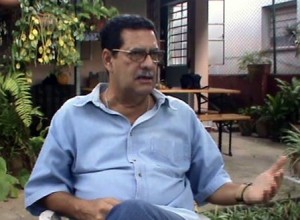
Stimulate people-to-people contact
HAVANA – Flying from Miami to Havana takes only a few minutes. Chatting with Prof. Jesús Arboleya, a doctor in Historical Science, on subjects that link both cities is like an hours-long flight that goes by unnoticed, thanks to the depth of his ideas and the entertaining way in which he presents them.

My previous article was intentionally provocative, but Arboleya is an artist in provocation, prompting interlocutors to debate and exchange fire. Those characteristics were a challenge for me to summarize, through questions, a long conversation/debate that we held 48 hours ago. The essential parts of our dialogue appear below:
Manuel Alberto Ramy (MAR): What are the principal measures taken by Washington and Havana that facilitate and improve relations between Cubans on both sides of the Strait?
Jesús Arboleya Cervera (JAC): Although in practice it was only to reestablish the policy that existed during the Clinton administration, which was restrictive in many ways, the loosening of the rules on travel and remittances established by Obama contributed to these relations, in contrast with Bush’s term in office.
In the case of Cuba, the most important aspect has been the new immigration policy, a reflection of a different approach to immigration in general and Cuban-Americans in particular.
MAR: How are [the new measures] impacting on both societies?
JAC: They impact on everything, because this is a problem that involves multiple aspects of society, especially families. But if I had to say what I consider most important, I would say that it is a change in the perception that each society has of the other. This stimulates cooperation instead of confrontation, which is a relevant step forward, if we look to the past.
MAR: Could some of the measures taken by the Cuban government motivate Cuban-Americans to register and vote in favor of their interests? Do you see any signs to that effect? I ask this because I think that the number of Cuban-Americans who have registered to vote is not what it should be.
JAC: Cuban-Americans have one of the highest indices of political participation in the United States, comparable to that of white middle-class Americans. The problem is that that participation is inversely proportional to the date of their arrival in the U.S., so that the new immigrants are always at a disadvantage vis-à-vis the earlier immigrants.
In any case, I think that the latest election results show that the issue of improving relations with Cuba is important for all sectors, and that will be felt ever more strongly in the future.
What’s remarkable is the interest in the subject shown by the Cuban descendants born in the United States and by young people in general, as demonstrated by various studies and polls.
MAR: There is a strong right-wing lobby, but no lobby represents the elements that might be interested in a substantial improvement in relations with the island. Would more facilities from the Cuban side enable the emergence of a lobby that opposes the existing one?
JAC: An answer to that question is not at all simple. I shall try to summarize, even if I seem to disregard other important aspects. In my opinion, the fundamental problem of the Cuban-American lobby and U.S. policy toward Cuba in general lies in its erosion and the unviability of their purposes, both under present conditions and with a view to the future.
In the specific case of the Cuban-American community, this is manifested in the inability to reproduce the social base of the counter-revolution, as happened in the past. The trend, therefore, will be to systematically increase the rejection of the presuppositions that have been paramount so far. That will have some effect on U.S. policy.
It is clear that Cuba can influence that process, perhaps more than any other aspect of the dispute between the two countries. In fact, I think that people-to-people contact between Cubans and Cuban-Americans is the most solid resource the Cuban government has to influence U.S. policy toward Cuba. For that reason, it is advisable to encourage it, even if the package also produces undesirable results.
MAR: You speak of the risks involved when engaging in people-to-people relations. I think that the country has taken a big chance by changing or updating its economic model despite the international situation at a delicate moment in our history. In my judgment, nothing is exempt from risks.
In fact, economic relations (modest though they may be) do exist between Cuban-Americans and their relatives or friends in Cuba. Also, there are potential Cuban-American investors who are showing interest in investing on a major scale. That’s another risk; should we assume it?
JAC: In your recent article, “Cuba and Her Cubans,” you mention something that seems to me to be very important, regarding the possible consequences of enabling Cuban émigrés to invest in Cuba. I think this would give an economic foundation to people-to-people contact and have favorable economic and political consequences for Cuba.
First, it would create a problem for the economic blockade, both because of the increased opposition it would generate within the Cuban-American community against [the blockade] and because of the implications of persecuting the violators, as in fact is happening to some of those who invest in Cuba through relatives and friends, something that’s forbidden by the blockade.
It is clear that there is also a risk of allowing the penetration of capital intended for the political destabilization of the Cuban system. To prevent that, however, there are mechanisms already established by the government for the selection and control of all types of foreign investment.
Also, as I said before, there will appear undesirable consequences propitiated by the very dynamics of the process, which need to be amended as we go. In any case, the best protection lies precisely in creating an adequate legal framework for such investments, where the duties and rights of everyone are defined and where a commitment of compliance exists, from both parties, without impairment of the political order that exists in Cuba. No country that respects its own sovereignty and independence would accept anything less.
MAR: According to figures that I took from one of your seminars, 18 percent of Cuban-Americans live under the poverty level and 25 percent have no health insurance. Will these be the fundamental causes of the definitive return to Cuba of something like 1,500 compatriots in the current year?
JAC: There is still no serious study of the reasons for the increasing return of émigrés to Cuba in recent years. It is obvious that the relaxation of Cuban policy in this respect has had a bearing on this, as well as the social securities that exist on the island, especially for people who are elderly or face a difficult economic situation in the countries where they live.
But I don’t believe that these factors are the only ones (we need to take our culture into account) or that there is a lineal relation between the decline in social indicators seen in the Cuban-American community in the past 10 years and the increase in the cases of return [to the homeland].
Nor do I think that this will become a massive problem. It will end up as a normal phenomenon within a circular migratory process, which is where Cuba’s new migratory policy is going.
MAR: If the next presidential election in the U.S. is won by a Republican, what would be the scenario on both shores of the Florida Strait?
JAC: Talking about the result of the next U.S. election and its consequence for Cuba is an exercise for soothsayers and that’s not my trade, so I prefer not to speculate.
I’ll stick to what I said earlier. The current policy toward Cuba is in crisis, which doesn’t mean that it is an unbearable crisis, because, while Cuba is of permanent interest to the United States, to change the current policy is not urgent enough to mobilize the U.S. political system.
I’ve lost track of how many years the United Nations has been condemning the U.S. blockade against Cuba. It is practically the only resolution against the United States at the U.N., yet Washington doesn’t even flinch and public opinion demands no explanation.
The truth is that whether the next president of the United States is a Democrat or a Republican (“they’re not the same but they’re identical”) everything will depend on other variables, which still are not totally clear.
NOTE: We shall soon publish, exclusively and in installments, the latest work by Prof. Arboleya about the reality of emigration and U.S. relations with Cuba.
Progreso Semanal/ Weekly authorizes the total or partial reproduction of the articles by our journalists, so long as source and author are identified.


